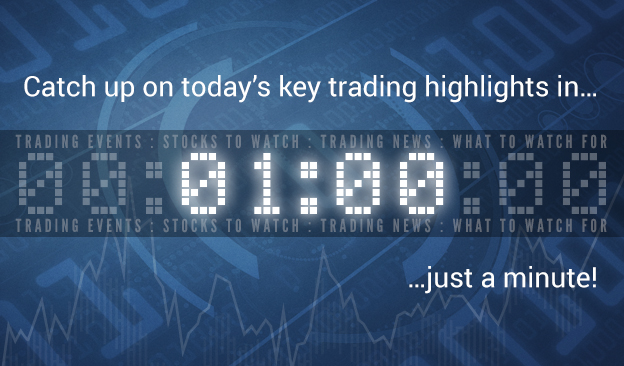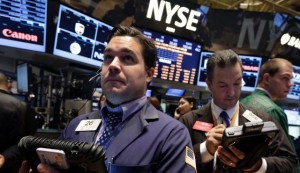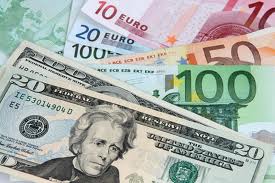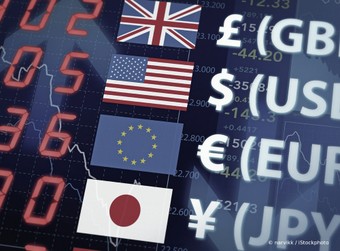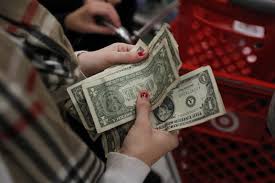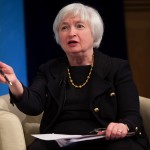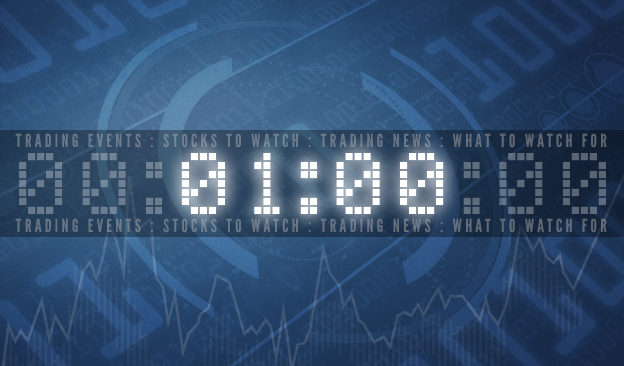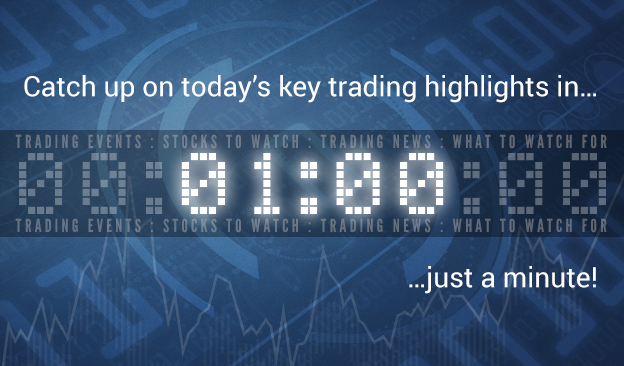Here’s today’s ‘Just A Minute’ bringing you a 60 second summary of what’s happening in the financial markets:
WHAT WE’RE WATCHING TODAY
Dollar Steady Drawing Support From Rise In US Yields
The dollar held steady against a basket of major currencies on Tuesday, holding on to gains made the previous day as a result of higher U.S. bond yields after last week’s solid U.S. jobs report. The dollar index stood at 80.607, keeping above a near two-week low of 80.240 touched last Friday. The dollar held its ground against the euro, which pulled back from last week’s high of $1.3677 as a short-covering rally following the European Central Bank’s easing steps lost momentum. The Euro was steady at $1.3591, after having lost 0.4 percent on Monday. The retreat in the euro brought it back closer to a four-month low of $1.3503 touched on Thursday shortly after the ECB cut interest rates to record lows and took its deposit rate into negative territory for the first time. The euro could face further downward pressure in the near term, hampered by a widening in interest rate differentials between the United States and the euro zone, according to market strategists, and interest rate differentials could be a driver for the euro versus the dollar. A rise in the benchmark 10-year U.S. Treasury yield from an 11-month low of 2.042 percent set in late May has helped bolster the greenback’s appeal. The 10-year U.S. Treasury yield last stood near 2.60 percent.
Global Stocks Near Record Highs As Volumes Decline
Global stock markets are on the brink of record highs, but analysts warn of alarm bells ringing as volumes in the markets are low and show no sign of bottoming out. U.S. equity indices hit record highs last week and looked set to advance their gains on Monday as the Dow Jones Industrial Average rose to an intraday record. In Europe, stocks also started the week on a positive note. The MSCI All Country World Index, which tracks equity markets across 45 countries, was higher on Monday at 426.77, just shy of its record high of 428.63 hit in 2007. However, even as the bull run continues, supported by data pointing to an economic recovery in the U.S. and Europe, traders are concerned about the lack of price volatility and low trading volumes, which they say make it difficult to detect investor mood. During the financial crisis, U.S. equity volumes traded at around 9 billion shares a day. Now, around 5 billion shares a day are being traded. Small volumes are also adding to low equity market volatility, which has dropped to levels not seen since 2007. As equity markets trade around levels not seen since before the global financial crisis in 2008, economists have warned that a correction could be on the way.
Paypal Chief Joins Facebook To Strengthen Mobile Messaging
A stronger set of features, possibly including payments, may be coming to Facebook’s messaging properties as former PayPal president David Marcus joins the social network as head of mobile messaging. Facebook’s hiring of Marcus represents a serious investment by the company to strengthen its messaging software. Facebook did not say what improvements specifically might be coming, but it’s clear the company is looking to further expand the use of its messaging apps, and maybe introduce monetization features. Messaging has grown to become an important part of Facebook’s service. Around billion messages are sent through Facebook daily, according to the company. Messenger, Facebook’s standalone messaging app, is also used now by more than 200 million people every month, just under one-fifth of Facebook’s total user base. Facebook is becoming more active in mobile messaging with other apps, too, having recently purchased WhatsApp, and with a new photo messaging app in the pipeline.
That sums up today’s highlights! We hope you have a profitable day on the markets.

